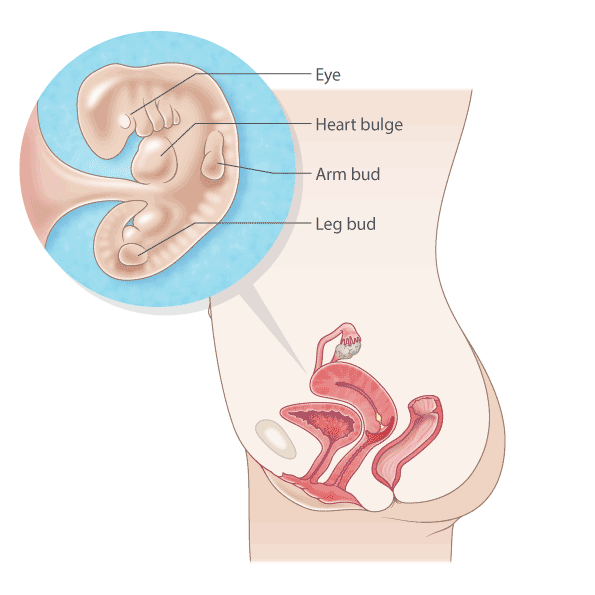
Week 7 of Pregnancy: A Comprehensive Guide
Pregnancy is a remarkable journey, filled with both excitement and anticipation. As you enter week 7, your body and baby are undergoing significant changes. This article provides a comprehensive guide to week 7 of pregnancy, covering everything from fetal development to common symptoms and essential prenatal care.
Fetal Development
At week 7, your baby, known as an embryo, is about the size of a blueberry. This week marks a crucial stage in development, as the embryo’s major organs begin to form.
- Neural tube: The neural tube, which will eventually develop into the brain and spinal cord, begins to close.
- Heart: The heart, which has been beating since week 4, becomes more complex and starts to divide into chambers.
- Limbs: Tiny buds that will eventually become arms and legs appear.
- Eyes: The eyes begin to develop, with the formation of the optic vesicles.
- Ears: The ears start to take shape, with the formation of the inner ear structures.
Common Symptoms
Week 7 of pregnancy can bring a range of symptoms, including:
- Morning sickness: Nausea and vomiting are common, especially in the morning.
- Fatigue: Increased levels of progesterone can lead to fatigue and sleepiness.
- Breast tenderness: Your breasts may become swollen and tender as they prepare for milk production.
- Frequent urination: The growing uterus can put pressure on your bladder, leading to more frequent urination.
- Mood swings: Hormonal changes can cause mood swings and emotional sensitivity.
- Constipation: Progesterone can slow down digestion, leading to constipation.
Essential Prenatal Care
Prenatal care is crucial for ensuring the health and well-being of both you and your baby. During week 7, it is important to:
- Schedule your first prenatal appointment: This appointment will typically include a physical exam, blood work, and urine analysis.
- Start taking prenatal vitamins: Prenatal vitamins provide essential nutrients, such as folic acid, iron, and calcium, that are necessary for fetal development.
- Eat a healthy diet: Focus on consuming nutrient-rich foods, such as fruits, vegetables, whole grains, and lean protein.
- Exercise regularly: Moderate exercise, such as walking or swimming, can help improve your overall health and reduce pregnancy-related symptoms.
- Get enough sleep: Aim for 7-9 hours of sleep each night to ensure your body has time to rest and recover.
- Avoid alcohol and smoking: Alcohol and smoking can harm your baby’s development.
Tips for Managing Symptoms
- Morning sickness: Eat small, frequent meals, avoid spicy or greasy foods, and try ginger tea or crackers.
- Fatigue: Rest when you need to, and avoid overexerting yourself.
- Breast tenderness: Wear a supportive bra and apply cold compresses to your breasts.
- Frequent urination: Drink plenty of fluids, but avoid caffeine and alcohol.
- Mood swings: Talk to your partner, friends, or a therapist about your feelings.
- Constipation: Eat fiber-rich foods, drink plenty of fluids, and consider using a stool softener.
When to Seek Medical Attention
While most symptoms of week 7 are normal, it is important to seek medical attention if you experience any of the following:
- Severe pain or cramping
- Heavy bleeding
- Fever or chills
- Vaginal discharge that is foul-smelling or bloody
- Sudden loss of symptoms
Conclusion
Week 7 of pregnancy is a time of significant change and development for both you and your baby. By understanding the common symptoms, essential prenatal care, and tips for managing discomfort, you can navigate this stage of pregnancy with confidence and ensure the health and well-being of your growing baby. Remember to listen to your body, stay informed, and seek medical attention when necessary.